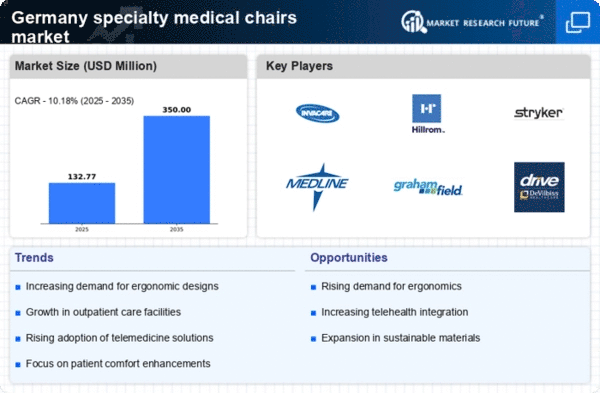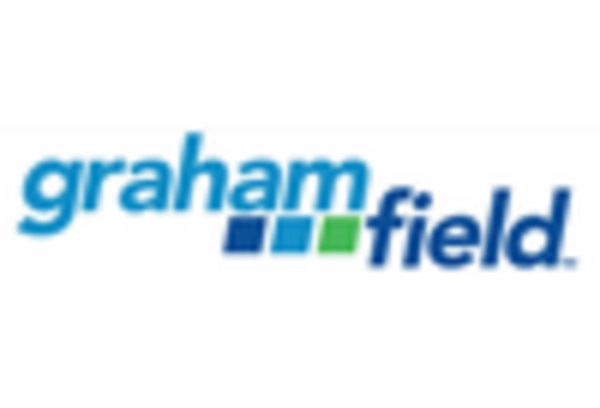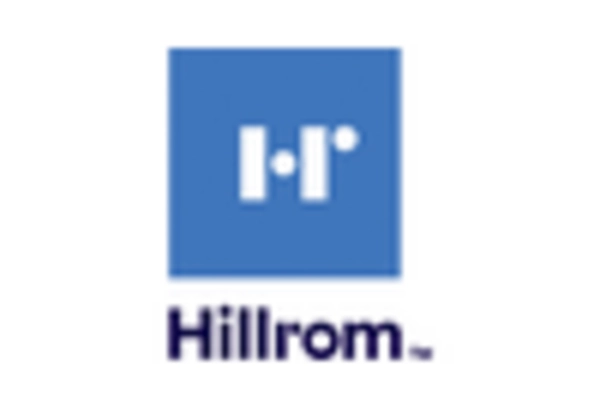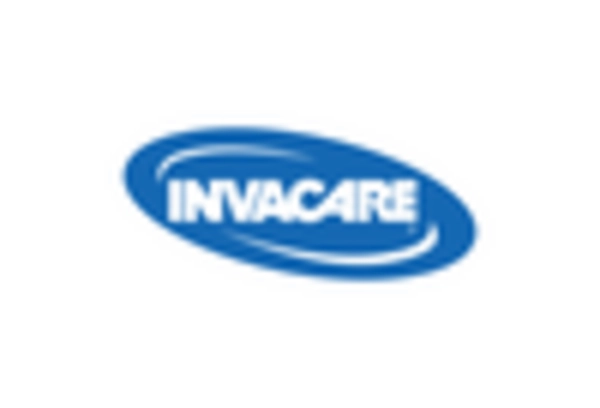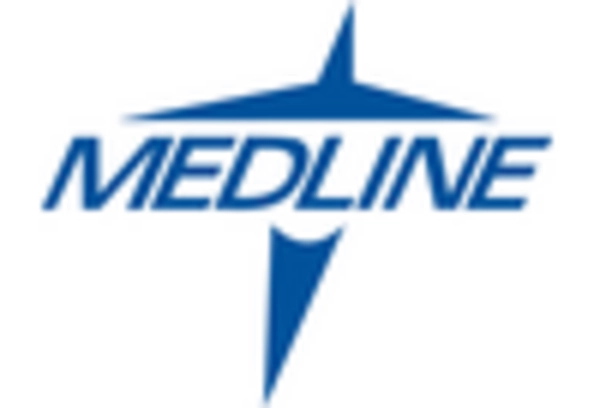Aging Population Demographics
The aging population in Germany is a crucial driver for the specialty medical-chairs market. As the demographic shifts towards an older age group, the demand for specialized medical chairs that cater to the needs of elderly patients is likely to increase. This segment of the population often requires enhanced comfort and support, which specialty medical chairs provide. According to recent statistics, individuals aged 65 and older are projected to make up approximately 22% of the total population by 2030. This demographic trend suggests a growing market for chairs designed for geriatric care, rehabilitation, and mobility assistance, thereby driving innovation and investment in the specialty medical-chairs market.
Increased Healthcare Expenditure
Germany's healthcare expenditure has been on the rise, which positively impacts the specialty medical-chairs market. The government and private sectors are investing more in healthcare infrastructure, leading to the procurement of advanced medical equipment, including specialty chairs. In 2023, healthcare spending in Germany reached approximately €450 billion, with projections indicating a continued upward trend. This increase in funding allows healthcare facilities to upgrade their equipment, ensuring that they meet the evolving needs of patients. Consequently, the specialty medical-chairs market is likely to benefit from this financial commitment, as hospitals and clinics seek to enhance patient care through improved seating solutions.
Regulatory Standards and Compliance
Regulatory standards and compliance requirements in Germany are shaping the specialty medical-chairs market. The healthcare sector is subject to stringent regulations that ensure patient safety and comfort. As a result, manufacturers of specialty medical chairs must adhere to these standards, which can drive innovation and quality improvements. Compliance with regulations such as the Medical Device Regulation (MDR) is essential for market players, as it influences product design and functionality. This regulatory landscape encourages the development of chairs that not only meet safety requirements but also enhance user experience. Consequently, the specialty medical-chairs market is likely to evolve in response to these regulatory pressures, fostering a competitive environment.
Rising Awareness of Patient Comfort
There is a growing awareness of the importance of patient comfort in healthcare settings, which serves as a significant driver for the specialty medical-chairs market. Healthcare providers in Germany are increasingly recognizing that comfortable seating can lead to better patient outcomes and satisfaction. This shift in focus is prompting hospitals and clinics to invest in high-quality specialty chairs that cater to various medical needs. Research indicates that patient satisfaction scores are closely linked to the quality of seating provided during treatment. Therefore, the emphasis on patient comfort is likely to propel the demand for specialty medical chairs, as healthcare facilities strive to enhance their service quality.
Technological Advancements in Medical Equipment
Technological advancements are significantly influencing the specialty medical-chairs market in Germany. Innovations such as smart chairs equipped with sensors and adjustable features are becoming increasingly prevalent. These advancements not only enhance patient comfort but also improve the efficiency of healthcare providers. For instance, chairs that can automatically adjust to a patient's body type or provide real-time health monitoring are gaining traction. The integration of such technologies is expected to drive market growth, as healthcare facilities aim to provide superior patient experiences. As a result, the specialty medical-chairs market is likely to see a surge in demand for technologically advanced seating solutions.


